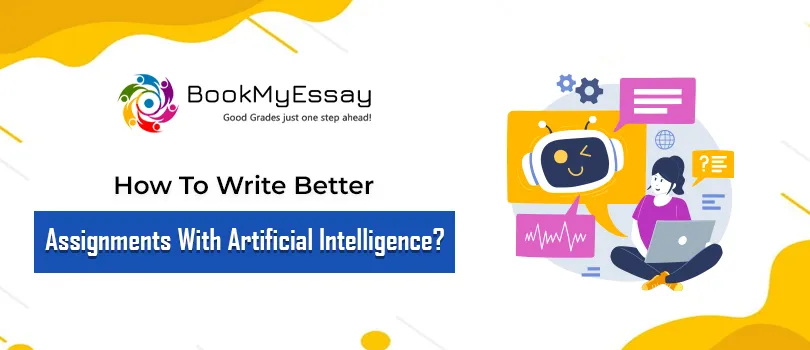In the fast-paced world of academia, students are constantly seeking innovative ways to enhance their learning experience and achieve academic success. One such revolutionary tool that has emerged in recent years is Artificial Intelligence (AI). Beyond its applications in various industries, Artificial Intelligence assignment help is proving to be a valuable asset for students looking to elevate the quality of their assignments. In this blog post, we will explore how AI can be leveraged for superior assignment writing, ensuring not just better grades but also a deeper understanding of the subject matter.
Automated Research Assistance
One of the most time-consuming aspects of assignment writing is research. AI-driven tools, equipped with natural language processing capabilities, can sift through vast amounts of information in seconds. Platforms like Grammarly and Turnitin utilize AI to assist students in gathering relevant data, ensuring the accuracy and reliability of their Assignment help This not only saves time but also enhances the quality of research, leading to more comprehensive and well-informed assignments.
1. Grammar and Style Enhancement
Effective communication is crucial in academic writing. AI-powered tools excel in analyzing language nuances, offering suggestions for grammar corrections, sentence structure improvements, and vocabulary enhancements. These tools act as virtual writing assistants, polishing the language of assignments and helping students express their ideas more clearly and persuasively. This is particularly beneficial for non-native English speakers who can use AI to bridge language gaps and communicate more effectively.
2. Personalized Learning and Feedback
AI can cater to individual learning needs by providing personalized feedback on assignments. Platforms like Gradescope and Essaybot use machine learning algorithms to assess student work, offering detailed insights into strengths and areas for improvement. This tailored feedback not only guides students in refining their writing skills but also fosters a deeper understanding of the subject matter. As AI continues to evolve, the feedback provided becomes increasingly sophisticated, contributing to a more personalized and effective learning experience.
3. Plagiarism Detection
Maintaining academic integrity is paramount, and AI plays a crucial role in ensuring that assignments are original and free from plagiarism. Tools like Turnitin employ advanced algorithms to compare students' work against a vast database of academic content, identifying any instances of plagiarism. By using AI-driven plagiarism detection, students can confidently submit their assignments, knowing that their work is authentic and in compliance with academic standards.
4. Time Management
AI can significantly improve time management for students. Chatbots and virtual assistants can help organize tasks, set deadlines, and provide reminders, ensuring that students stay on track with their assignments. By automating routine aspects of the assignment process, students can focus more on the creative and critical thinking aspects of their work, leading to more thoughtful and well-crafted assignments.
Conclusion
In the ever-evolving landscape of education, embracing Artificial Intelligence is not just a trend but a strategic move towards academic excellence. By harnessing the power of AI, students can streamline their assignment writing process, receive personalized feedback, and elevate the overall quality of their work. As AI technology continues to advance, the possibilities for improving the learning experience are limitless. Embrace the future of education with AI, and watch your assignments transform into masterpieces of knowledge and creativity.





 3 Bellbridge Dr, Hoppers Crossing, Melbourne VIC 3029
3 Bellbridge Dr, Hoppers Crossing, Melbourne VIC 3029




